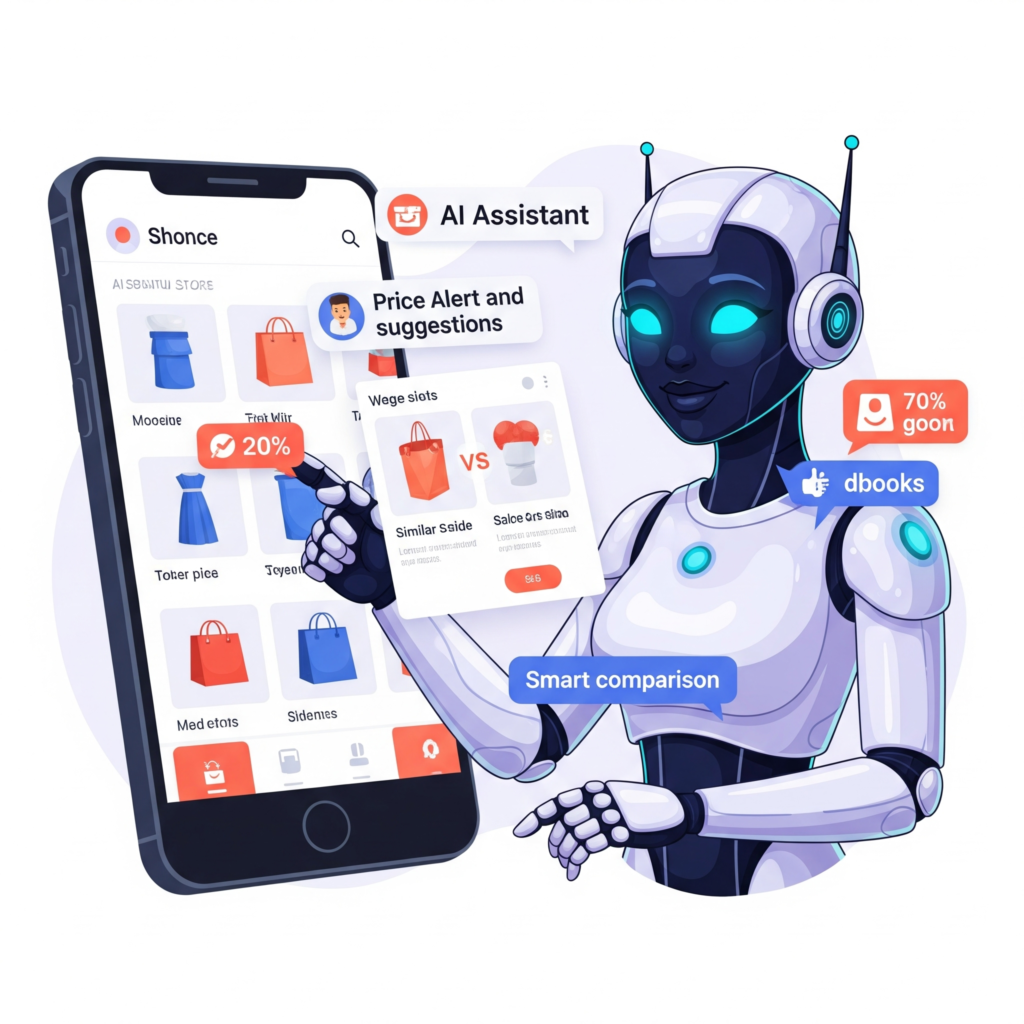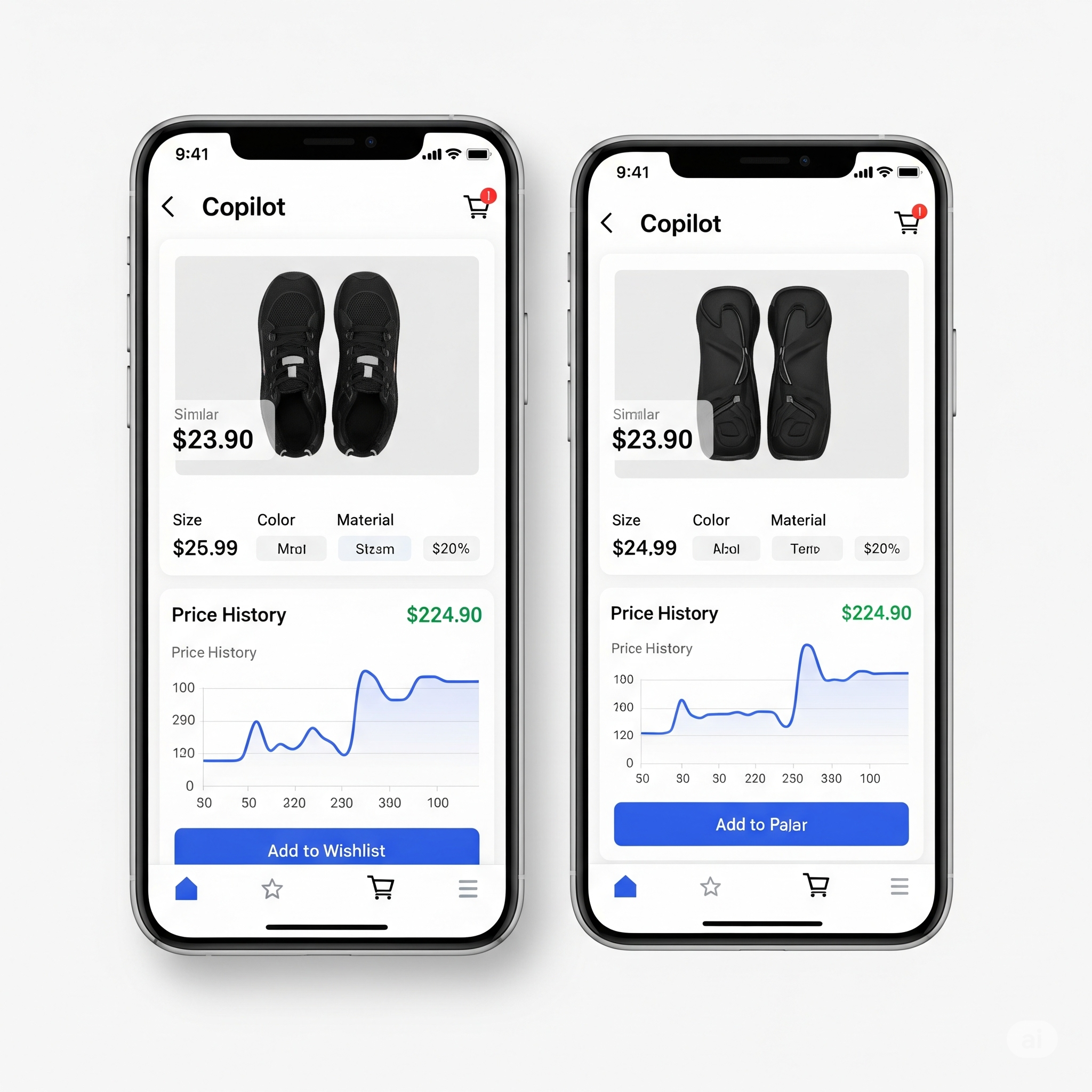In-short:
- Microsoft has integrated AI-powered shopping features into its Copilot app.
- Features include real-time price tracking, intelligent product comparisons, and seamless shopping assistance.
- The integration aims to streamline online shopping while empowering consumers with smarter choices.
- Potential implications for e-commerce competitiveness, user privacy, and AI adoption in retail.
- This move reflects a broader trend of generative AI transforming daily digital experiences.
Introduction
Online shopping has become a fundamental part of modern consumer behavior, especially in the post-pandemic digital economy. From price comparison websites to browser extensions and chatbot assistants, technology has been steadily evolving to make online shopping easier and more informed. In a significant leap, Microsoft has now integrated advanced AI shopping tools into its Copilot app, enabling users to track prices, compare products, and receive personalized recommendations within the same interface. This update not only adds convenience but signals the expanding role of AI in consumer commerce.
In this blog, we will unpack what Microsoft’s AI-powered Copilot shopping feature entails, how it works, who stands to benefit, and what it means for the future of e-commerce and consumer behavior.
The Rise of AI in Shopping
AI’s Growing Influence in Consumer Tech
Artificial Intelligence has been transforming various industries from finance to healthcare, and retail is no exception. In e-commerce, AI is being used for everything from chatbots and customer service to personalized product recommendations, fraud detection, and inventory management.
From Search Engines to Smart Assistants
Traditionally, online shoppers had to manually search for the best prices or rely on static comparison websites. The evolution of smart assistants, however, has changed this dynamic. Microsoft’s Copilot AI integration is a significant upgrade, essentially embedding a smart shopping assistant directly into a productivity ecosystem.
What is Microsoft Copilot?
Overview of Copilot
Microsoft Copilot is an AI assistant embedded across Microsoft 365 tools like Word, Excel, PowerPoint, and more. It leverages OpenAI’s GPT models to help users write content, summarize data, and automate repetitive tasks.
Copilot Expands to Shopping
The new AI shopping feature allows Copilot to help users with e-commerce tasks such as:
- Price Tracking: Real-time monitoring of product prices.
- Product Comparisons: Side-by-side analysis of similar products based on features, price, reviews, and seller reliability.
- Smart Suggestions: Personalized shopping recommendations.
- Integrated Checkout Assistance: Helping users navigate to the best deals efficiently.
Key Features Explained
1. Real-Time Price Tracking
This feature helps users stay updated on fluctuating prices. Copilot keeps a history of price trends and notifies users of drops or increases, ensuring that purchases are made at the optimal time.
Example: Searching for a laptop? Copilot can alert you when a price dips below your target threshold.
2. Intelligent Product Comparison
Rather than switching between multiple tabs and websites, users can compare products in real-time within Copilot. The AI summarizes key differences and provides pros and cons.
Example: Comparing smartphones? Copilot will give you a detailed but concise comparison of camera specs, battery life, and user ratings.
3. Personalized Recommendations
Using your search history and preferences, Copilot can suggest products that match your style, needs, and budget. It’s a leap beyond the basic recommendation algorithms seen on e-commerce platforms.
4. Seamless User Experience
These features are embedded within Microsoft Edge and Copilot, meaning users don’t need to install additional apps or plugins. This native integration offers a smoother, less fragmented shopping experience.
Implications for Consumers
Smarter Shopping Decisions
By automating comparison and tracking tasks, users can make more informed and timely purchasing decisions.
Time and Cost Efficiency
Manual browsing is time-consuming. Copilot’s AI features reduce this friction, saving users both time and potentially money.
Data Privacy and Personalization
While the personalization is impressive, it raises questions about how much data Microsoft collects and how it is used. Fortunately, Microsoft is generally known for prioritizing enterprise-grade security.
Competitive Landscape
Microsoft vs. Google vs. Amazon
With Google already offering AI-powered shopping results and Amazon being the world’s largest e-commerce platform, Microsoft’s move is about bridging productivity and commerce. Instead of acting as a separate e-commerce platform, Copilot acts as an intelligent shopping companion that sits on top of your web browsing activity.
Edge Browser Advantage
By integrating shopping into Edge and Bing, Microsoft is differentiating its ecosystem from rivals who focus primarily on search or marketplace.
Impact on E-Commerce Retailers
Adapting to Smart Comparisons
Retailers may need to rethink pricing strategies, as smart comparison tools make it easier for users to find better deals.
New Marketing Opportunities
Being recommended by Copilot could become a new channel for customer acquisition, much like being featured on Google’s first page.
Pressure on Transparency
AI-driven comparisons mean that inflated claims or poor-quality listings are more likely to be exposed.
Future Outlook

Expansion of Features
As the technology matures, we can expect Copilot to include:
- Voice Shopping Integration
- AI Deal Forecasting
- Eco-friendly Product Recommendations
Integration with Third-party Retailers
Copilot might eventually support deeper integrations with marketplaces like Flipkart, Walmart, or Alibaba, improving its global shopping capabilities.
AI and Ethical Commerce
The transparency that AI brings may push companies toward more ethical business practices and honest marketing.
Challenges and Considerations
Accuracy of Recommendations
AI is only as good as the data it receives. Poor data quality can lead to misleading suggestions.
Bias in Algorithms
AI systems can sometimes reflect biases in the datasets they’re trained on, which can influence product recommendations unfairly.
Over-Reliance on AI
While AI can enhance decision-making, consumers must still apply judgment and critical thinking.
Conclusion
Microsoft’s integration of AI-powered shopping features into Copilot marks a significant step forward in e-commerce and personal productivity. It is a clear indicator that AI is not just a back-end enterprise tool, but a front-facing assistant shaping the way we live and shop online. With real-time price tracking, intelligent product comparisons, and a streamlined user experience, Copilot Shopping is poised to become an indispensable tool for tech-savvy consumers. However, as with all AI tools, its success will depend on transparency, ethical data use, and user trust.
In the rapidly evolving world of e-commerce, Microsoft’s bold move might just redefine how we interact with digital marketplaces—one smart decision at a time.









+ There are no comments
Add yours